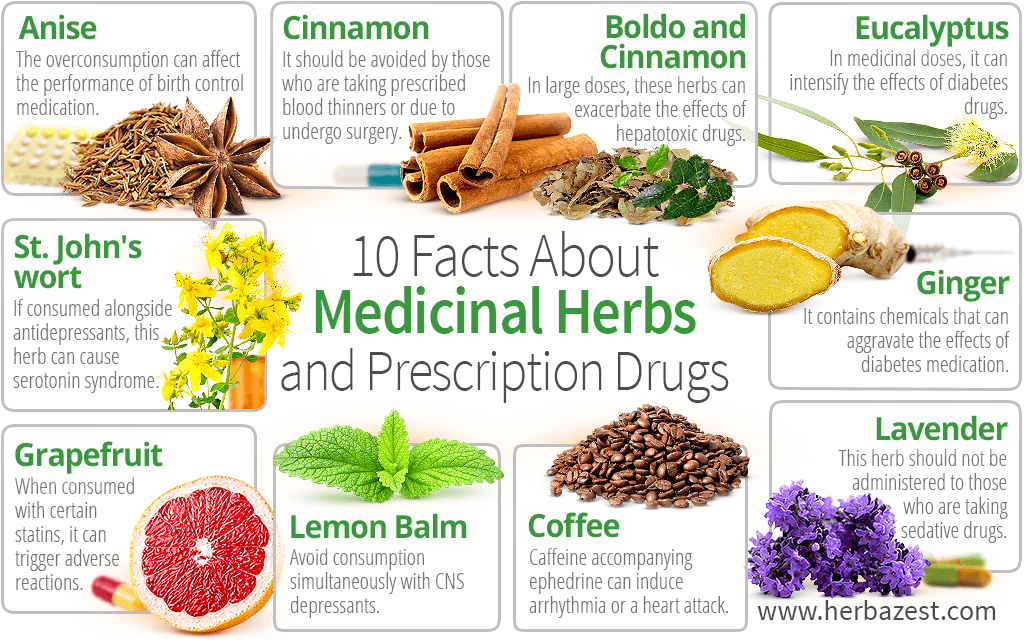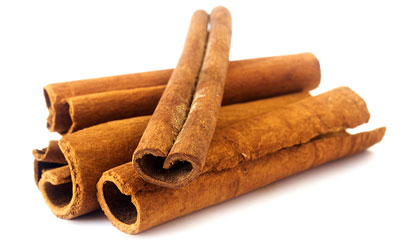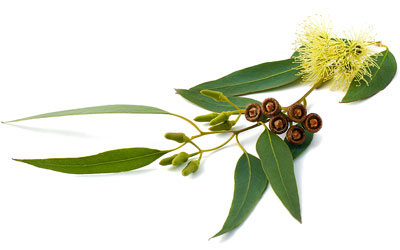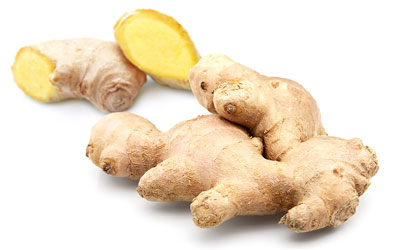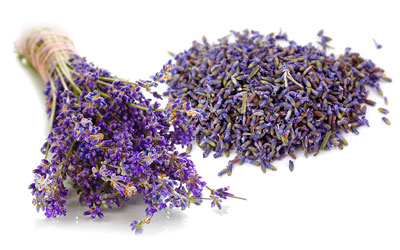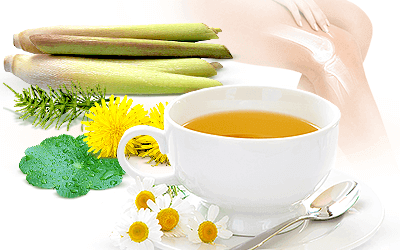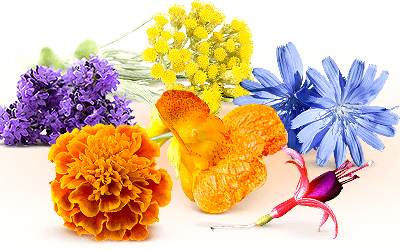Although medicinal herbs can be helpful in treating a wide range of conditions, it is important to be aware that they may negatively interact with prescribed medications. While it is generally accepted that most herbs are safe for moderate consumption, it is key to speak with your doctor if you are pregnant, breastfeeding, or have any serious pre-existing health conditions.
1. Anise and Estrogen
Compounds within anise exert an estrogenic action, which means overconsumption of the herb can lead to an excess of estrogen in the body. This may affect the performance of birth control medication or be the cause of hormonal imbalances. Surplus estrogen in the body from herbs like anise can also have negative interactions with hormone replacement therapy (HRT) may be taken by women who are experiencing menopause symptoms.
2. St. Johns Wort and Antidepressants
St. John's wort is an herb most commonly taken to uplift mood. However, if consumed alongside prescription antidepressants, it can cause a dangerous condition called serotonin syndrome. The herb also has the potential to interact with many other drugs, includes warfarin and allergy medication, so ample care should be taken.
3. Cinnamon and Blood Thinners
Cinnamon has anticoagulant properties, which means it may affect blood's ability to clot. Consumption of this herb can help those who are at risk of internal blood clots; however, it should be avoided by those who are already taking prescribed blood thinners or due to undergo surgery.
4. Choleretic Herbs and Hepatotoxic Drugs
Herbs broken down by the liver - such as boldo and cinnamon - can be potentially harmful to this organ in large doses, and they can worsen the effects of hepatotoxic drugs. Additionally, those suffering from liver disease are advised not to ingest such herbs as they may worsen the symptoms.
5. Coffee and Stimulant Drugs
In moderation, the consumption of coffee is usually harmless; however, it is important to avoid it if you are already taking stimulant drugs, such as ephedrine. Ingesting this type of medicine along with caffeine can cause serious side effects, from arrhythmia to heart attack in extreme cases.
6. Eucalyptus and Diabetes Drugs
Eucalyptus compounds have a hypoglycemic effect, which means that they can reduce blood sugar. While this sounds like a good thing for diabetics looking for natural ways to regulate their high glucose levels, taking eucalyptus in medicinal doses can dangerously amplify the effects of diabetes drugs, like insulin.
7. Ginger and Anticoagulants
Substances in ginger have the potential to inhibit blood clotting. Therefore, those who are already taking anticoagulant drugs or blood thinners should avoid consuming this herb in medicinal doses. Ginger also contains chemicals that can affect insulin levels in the blood and worsen the effects of diabetes medication. Diabetics under treatment are generally advised to avoid taking ginger supplements or using too much of this herb in their food.
8. Grapefruit and Statins
Grapefruit is a nutritious fruit, but when consumed alongside certain cholesterol lowering medications it can increase the potency of statins, meaning too much of the drug is absorbed into the bloodstream. In particular, atorvastatin, lovastatin, and simavastatin should not be taken with grapefruit juice to avoid adverse reactions.
9. Lavender and Sedative Drugs
A popular herb in aromatherapy, lavender is known for its ability to relieve stress. However, because of its anti-anxiety properties, it should not be administered to those who are taking sedative drugs. These include chloral hydrate, barbiturates, and other central nervous system (CNS) depressants, all of which may be prescribed to treat insomnia or anxiety.
10. Lemon Balm and CNS Depressants
Lemon balm is often suggested to those suffering from insomnia due to its calmative properties. However, it is important not to consume the herb - especially as a supplement, which is likely to contain high concentrations of active compounds - if you are already taking prescribed sedative medication, such as CNS depressants.
Herbal supplements may be natural, but they are not innocuous. Remember to seek the advice of a healthcare professional before taking herbs in therapeutic doses.
Most of the time, herbal supplements can be a great complement to a balanced diet and help keep the body healthy and functioning well. However, it is only fairly recently that scientists have revelead the potentially dangerous effects that herbal supplementation can have on prescribed medications. If you are taking prescribed drugs for pre-existing conditions, it is important to discuss taking herbal supplements with your doctor before doing so.
Sources
- Harvard University, Grapefruit juice and statins
- National Library of Medicine, Drug interactions between herbal and prescription medicines
- MedlinePlus Herbs and Supplements, Estrogen and Progestin (Oral Contraceptives)
- University of Maryland Medical Center, Possible Interactions with: St. John's Wort


